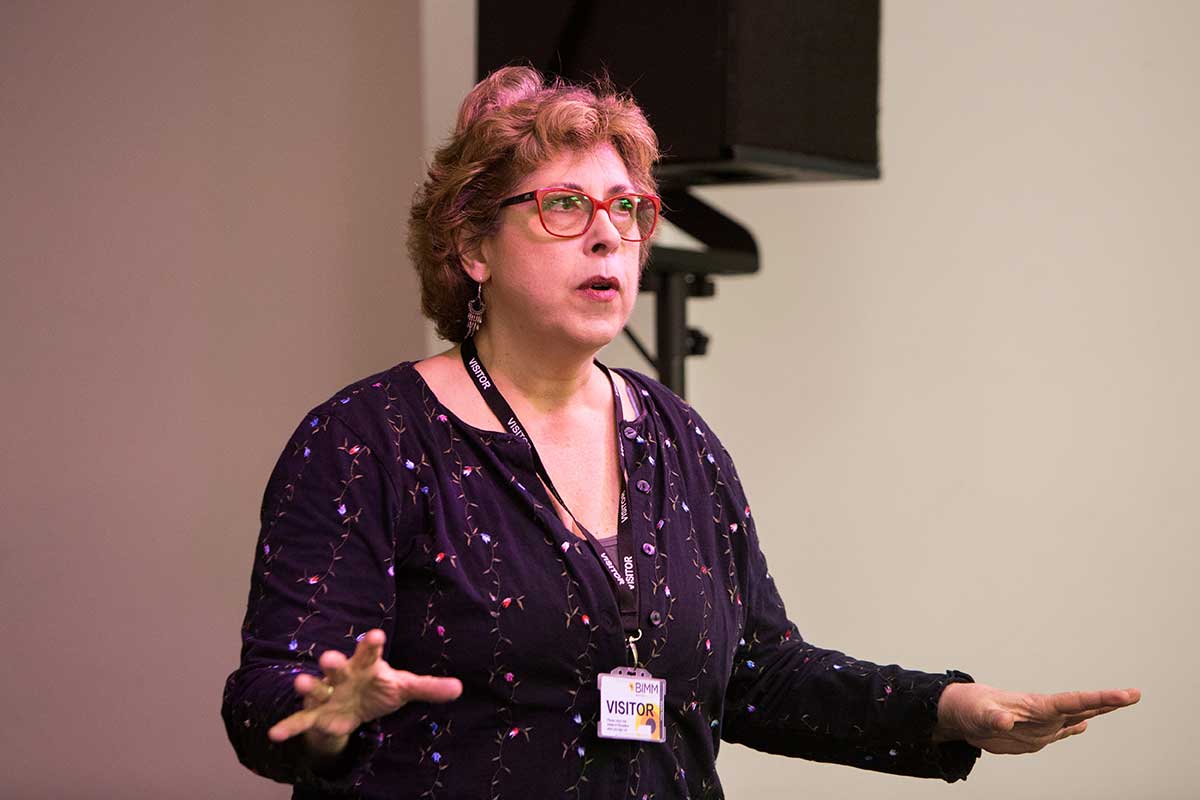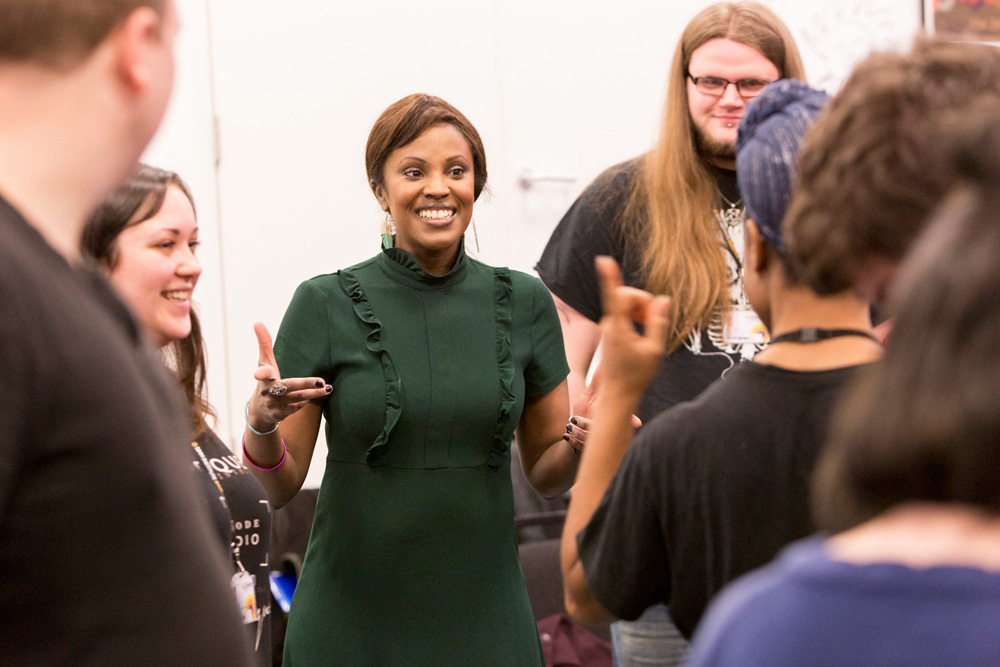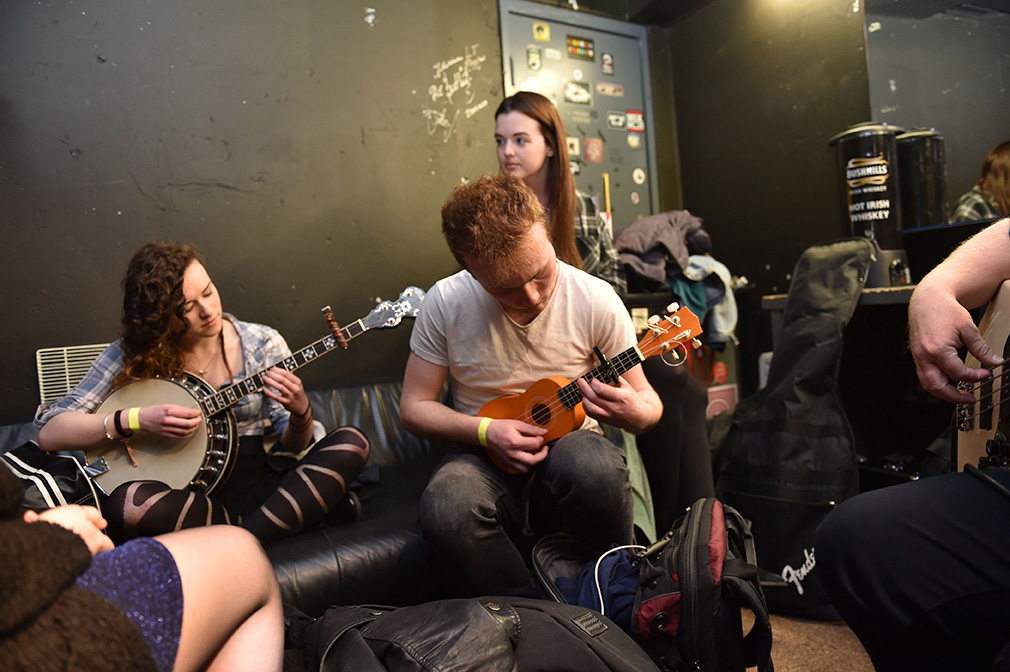I’ve conducted vocal master classes at BIMM every Spring for the past five years. I’ve met so many talented students, and am so grateful to have had the opportunity to work with them on the art and mechanics of performing in front of an audience.
Some instructors focus quite a bit on physical solutions to deal with anxiety, and these techniques are absolutely critical. But in this article, I want to talk more about the psychological and emotional aspects, because, if we fail to acknowledge our inner, vulnerable artist-self, and let our ego run the show, then we are destined to simply type words on a page, and never truly tell the story.
Here are some key points:
1. It’s not about you.
The “ego” is a funny thing. It’s selfish and self-serving, and always wants to take the front seat. But artistic expression goes deeper than the ego, and can only emerge when the ego is put aside. Example: You’re on stage and your mind wonders, “Do I look okay?” or “I hope I don’t trip over a wire.” Or, you are evaluating your performance during your performance, as in “Wow, I really held that note for a long time,” or “Damn, my voice cracked. Everything’s ruined now.” Exhausting, right?
The more you can get into the mindset of “I am not the main event here, it’s the music, the lyrics, the message that’s key. My performance comes through me, but it’s not about me.” In other words, you are the medium, the vessel. Don’t let your “monkey mind” obscure what’s really important.
2. Don’t let the voices in your head be louder than the voice coming out of your mouth.
We all have ongoing chatter in our heads, and sometimes these thoughts are less than supportive. These are scripts that have been compiled over time, based on our life experiences, and it’s the negative ones that we need to ban from that valuable space. And, unfortunately, those voices always seem to be the loudest! Stay positive, positive, positive. You’re on a path, and have every right to be on that path.
3. You have something meaningful to offer.
How often do our negative thoughts get in the way of our self-worth? “Nobody is really interested,” or “What if they don’t like me?” You’ll never know for sure unless you get out there and express yourself. Remember, it’s not about you! (See #1). And, you wouldn’t be agonizing over it this much if you were not driven to express yourself.
4. Consider the venue.
Very often students tell me, “I was playing in a pub last night and literally no one was listening to me. They were really loud, and then someone came up and asked me to turn down the volume!” And, the student became very discouraged by this. Don’t be!
Here’s the deal: There are many, many types of gigs. But, basically, there are two settings: 1) concerts and clubs and 2) restaurants and pubs. Adjust your expectations accordingly.
It wouldn’t matter who was performing if it’s a pub where the telly is blaring and the customers are drunk and disorderly. You are the least important thing on their minds. But it has nothing to do with you. Some gigs you just do to gain experience and perhaps a bit of pocket money. I call those gigs “getting paid to practice.” Don’t worry about it, just play what you want, how you want, collect the money, have a laugh and go home.
Concerts and proper clubs are where the people come to listen. That’s your opportunity to create a rapport with the audience, and dig deep. That’s where your artistic expression will have the space to develop and thrive. If you keep these differences clear in your mind, you’ll be less apt to get discouraged.
5. Have fun.
Nobody wants to sit through two hours of watching you suffer. The audience is on your side. They want you to succeed. Think of them as your allies, not your enemies. It may take you two or three songs to settle in, but that’s okay. Just take your time and it will happen.
6. Accept applause graciously.
Don’t run offstage while the audience are applauding as if you are fleeing a burning building. Those people are showing you their appreciation. Reciprocate by taking a moment to bow, acknowledge your band members, if any, and calmly walk offstage. It’s so important!
Of course, the ins and outs of vocal performance cannot be distilled into bullet points. Growing as an artist is a process, and takes time and care. Just stay on your path and above all, don’t ever listen to the haters or naysayers. There are plenty of them, and can appear in various forms. If you have a supportive family and friends, you are so lucky. Be grateful for that – not everyone has it. You have a right to do what you are doing, so just keep positive, stay focused, and keep singing!



